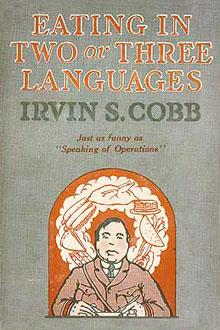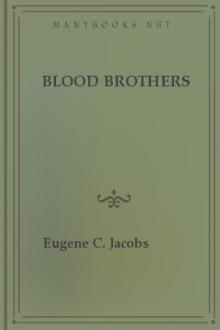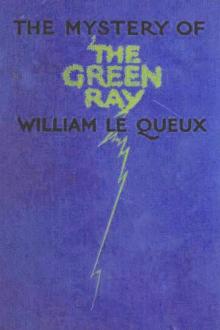Genre War. Page - 3

it, but I rather hate it for your own sake. Itisn't worthy of you, old boy. It's so--so ungentlemanly."
"So it is. But I do it because I'm bored. I am bored, you know.Desperately!" He stretched out his hand to her with such haggard,hunted eyes that Laura, reckless, threw herself down by him andkissed the heavy eyelids. Clowes put his arm round her neck,fondling her hair, and for a little while peace, the peace ofperfect mutual tenderness, fell on this hard-driven pair. Butsoon, a great sigh bursting from his breast, Clowes pushed heraway, his features settling back into their old harsh lines ofsavage pain and scorn.
"Get away! get up! do you want Parker to see you through thewindow? If there's a thing on earth I hate it's a dishevelledcrying woman. Write to Lawrence. Say I shall be delighted tosee him and that I hope he'll give us at least a week. Stop.Warn him that I shan't be able to see much of him because ofmy invalid habits, and that I shall depute you to entertainhim. Tha

company as believing in an Eternal life, and endeavour to draw any conclusions, from this assumed belief, as to their present business, they will forthwith tell you that what you say is very beautiful, but it is not practical. If, on the contrary, you frankly address them as unbelievers in Eternal life, and try to draw any consequences from that unbelief,--they immediately hold you for an accursed person, and shake off the dust from their feet at you. And the more I thought over what I had got to say, the less I found I could say it, without some reference to this intangible or intractable part of the subject. It made all the difference, in asserting any principle of war, whether one assumed that a discharge of artillery would merely knead down a certain quantity of red clay into a level line, as in a brick field; or whether, out of every separately Christian-named portion of the ruinous heap, there went out, into the smoke and dead-fallen air of battle, some astonished condition of soul, unwillingly released

re we changed our seven-shilling piece, and had a pint of small beer to help us in again lightening our bundle; and, after about an hour's rest, proceeded on for Poole, about nine miles from Wareham. We felt very tired, but still walked on, and gained our destination at a very late hour, owing to which we had some trouble in obtaining a lodging for the remaining part of the night; but at last we found one in a public house, where we finished our bread and bacon, together with some more beer, the best day's allowance we had had for some time past.
We slept very soundly, and in the morning went round to inquire for service on board the Newfoundland packets. We soon found a merchant of the name of Slade, who engaged us for two summers and a winter, myself for 20l. and my companion for 18l. for the whole time, and our food and lodging till the ship left the harbour. But we were not long in finding that our destination was not to be Newfoundland, for on the very next day my companion's mas

ion in full swing at night, with signals winking, lamps waving, engines hissing and carriages bumping. It is a terrible place down yonder, a place which will live as long as military history is written, for it is the Ypres Salient. What a salient it is, too! A huge curve, as outlined by the lights, needing only a little more to be an encirclement. Something caught the rope as it closed, and that something was the British soldier. But it is a perilous place still by day and by night. Never shall I forget the impression of ceaseless, malignant activity which was borne in upon me by the white, winking lights, the red sudden glares, and the horrible thudding noises in that place of death beneath me.
II
In old days we had a great name as organisers. Then came a long period when we deliberately adopted a policy of individuality and 'go as you please.' Now once again in our sore need we have called on all our power of administration and direction. But it has not deserted us. We still have it in a supre

ed for at the full adult rates. And, having by now exhausted our capacity for sea foods, we wound up with an alleged dessert in the shape of three drowned prunes apiece, the remains being partly immersed in a palish custardlike composition that was slightly sour.
"Never mind," I said to my indignant stomach as we left the table--"Never mind! I shall make it all up to you for this mistreatment at breakfast to-morrow morning. We shall rise early--you and I--and with loud gurgling cries we shall leap headlong into one of those regular breakfasts in which the people of this city and nation specialise so delightfully. Food regulators may work their ruthless will upon the dinner trimmings, but none would dare to put so much as the weight of one impious finger upon an Englishman's breakfast table to curtail its plenitude. Why, next to Magna Charta, an Englishman's breakfast is his most sacred right."
This in confidence was what I whispered to my gastric juices. You see, being still in ignorance of the

Before either could answer, bombs were falling on all sides of thehospital. "There they are!" I exclaimed. Not yet realizing howdangerous the bombs could be, we casually walked to the windows andwatched the tremendous explosions moving across the camp-towardheadquarters-raising clouds of dust to the rooftops. The war arrivedat Camp John Hay at 0809 hours, Dec. 8, 1941. Between twenty andtwenty-five twin-engine bombers were overhead in a diamond formation.Soon some 150 bombs of various sizes were bringing disability anddeath to many of our soldiers-drilling on the parade ground-and totheir families in their small homes. It seemed unreal that Camp Haycould be the first target of the Japanese bombers, actually startingWorld War II in the Philippines.
Where were our American planes? We probably did just what the Japaneseplanned that we would. We called Clark Air Field-about one-hundredmiles to the southwest, and told them, "Camp John Hay is being bombed!Get some fighters up here, and keep tho

f ever I saw honesty and truth and love and loyalty looking out of a girl's eyes, that girl is Myra McLeod."
"Thank you for that, Den," I answered simply. There was little sentiment between us. Thank heaven, there was something more.
"And so you see, you lucky dog, you'll go out to the front, and come back loaded with honours and blushes, and marry the girl of your dreams, and live happy ever after." And Dennis sighed.
"Why the sigh?" I asked. "Oh, come now," I added, suddenly remembering. "Fair exchange, you know. You haven't told me what was worrying you."
"My dear old fellow, don't be ridiculous, there's nothing worrying me."
I pressed him to no purpose. He refused to admit that he had a care in the world, and so we fell to talking of matters connected with the routine of army life, how long we should be before we got to the front, the sport we four should have in our rest time behind the trenches, our determination to stick together at all costs, etc. Suddenly Dennis sat

en floor that Friday, and rose with sore knees, aching shoulders, and red, rough hands. I never forgot the lesson Mama taught me. I must understand and respect those who might work for me.
Around that time, Mama entered into a business partnership with Meyer Weinrauch. Meyer's line of business was shoes, and he was opening a new store. While Meyer obtained merchandise from various wholesalers, Mama was to be in charge of the store.
The store was one the Eisenbadstrasse, outside the main Jewish district. Mama ran the business as smoothly and efficiently as she did her home. None of my friends had mothers who worked, but I accepted that my mother was different. I always believed Mama was a genius and could do whatever she set her mind to.
My friends were Jewish children who lived in our building and girls from clubs to which I belonged. I joined youth groups and we met on Shabbos afternoons to sing Hebrew songs and discuss religion and debate Jewish concerns. On Sundays, we went on outings

s been burnt, assail the camp of the SecondBrigade by night. It is a drawn game. They are astounded that the troopsdo not take it in good part.
They, when they fight among themselves, bear little malice, and thecombatants not infrequently make friends over the corpses of theircomrades or suspend operations for a festival or a horse race. At theend of the contest cordial relations are at once re-established. And yetso full of contradictions is their character, that all this is withoutprejudice to what has been written of their family vendettas and privateblood feuds. Their system of ethics, which regards treachery andviolence as virtues rather than vices, has produced a code of honour sostrange and inconsistent, that it is incomprehensible to a logical mind.I have been told that if a white man could grasp it fully, and were tounderstand their mental impulses--if he knew, when it was their honourto stand by him, and when it was their honour to betray him; when theywere bound to protect and when

s will fire." And Luffe nodded to one of the younger officers. "Do you see to it, Haslewood."
Haslewood rose and went out from the courtyard with the orderly. He returned in a few minutes, saying that the man had returned to Wafadar Nazim's camp. The six men resumed their meal, and just as they ended it a Pathan glided in white flowing garments into the courtyard and bowed low.
"Huzoor," he said, "His Highness the Khan sends you greeting. God has been very good to him. A son has been born to him this day, and he sends you this present, knowing that you will value it more than all that he has"; and carefully unfolding a napkin, he laid with reverence upon the table a little red cardboard box. The mere look of the box told the six men what the present was even before Luffe lifted the lid. It was a box of fifty gold-tipped cigarettes, and applause greeted their appearance.
"If he could only have a son every day," said Lynes, and in the laugh which followed upon the words Luffe alone did not